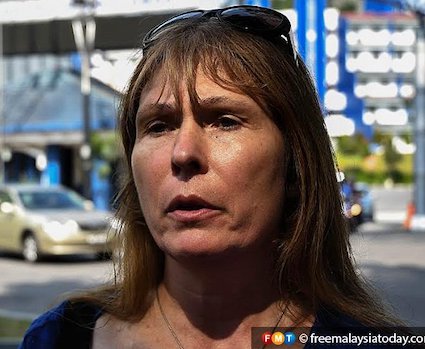According to the MACC, Sarawak Report is NOT considered a whistleblower

(MMO) – Contrary to popular belief, not everyone who leaks confidential information about organisational abuse is a whistleblower.
In a candid session with the media today, Malaysian Anti-Corruption Commission (MACC) chief Latheefa Koya said there are specific definitions on whistleblowing, and who qualifies for immunity and protection under the law.
She also said the commission has found some legal loopholes in the existing Whistleblower Protection Act 2010 and that she will be presenting her recommendations to lawmakers to plug them up.
“As far as the law is concerned, there are certainly certain gaps which we need to tighten up,” she told reporters here, without going into further detail.
Noting the public confusion on the “whistleblower” term, Latheefa explained that the MACC has three categories for individuals who approach the commission with information on corruption claims: informant, complainant or person who is affected, and finally, the whistleblower.
“If a person exposes something, that person in itself, does not necessarily mean that person is a whistleblower.
“Whistleblower means that the person may be affected or penalised, due to the information that has been exposed,” she clarified.
She added that the MACC has to tread carefully in deciding which category the person with information falls in as it has to balance providing protection for the whistleblower as a potential witness if the case goes to court, and the effectiveness of the complaint.
“If everything is exposed, how do we then do the investigation? And also, to understand, a person can also be defamed. A person or a company or whatever can be exposed to accusations or allegations which have yet to be investigated. So these are the things which we have to take note first,” she said.
However, she gave an assurance that anyone seeking the MACC’s protection will receive it if their cases were legit.
“When it comes to immunity, as far as MACC is concerned, if any person seeks for whistleblower protection, MACC on its own, actually does give that protection,” she added.
But she cautioned that the immunity granted can be revoked if the person was found to have lodged a false report.
“It really depends on what was the nature of the complaint,” she said, adding that those who approach the MACC must first identify themselves as an informant, a complainant, or a whistleblower.
She said this distinction was necessary for a practical reason, to prevent sabotage or efforts to undermine the MACC’s investigation process if the same information was later leaked out to the press or someone without investigative authority.
She said that under the Whistleblower Protection Act, those who provide the MACC with information are not allowed to leak details they obtained in order to qualify for protection.
Under the Act, informants are not allowed to expose the information they have obtained, in order to qualify for protection.
Latheefa said that on average, only 30 per cent out of 100 reports received by the MACC are valid and can be investigated.

